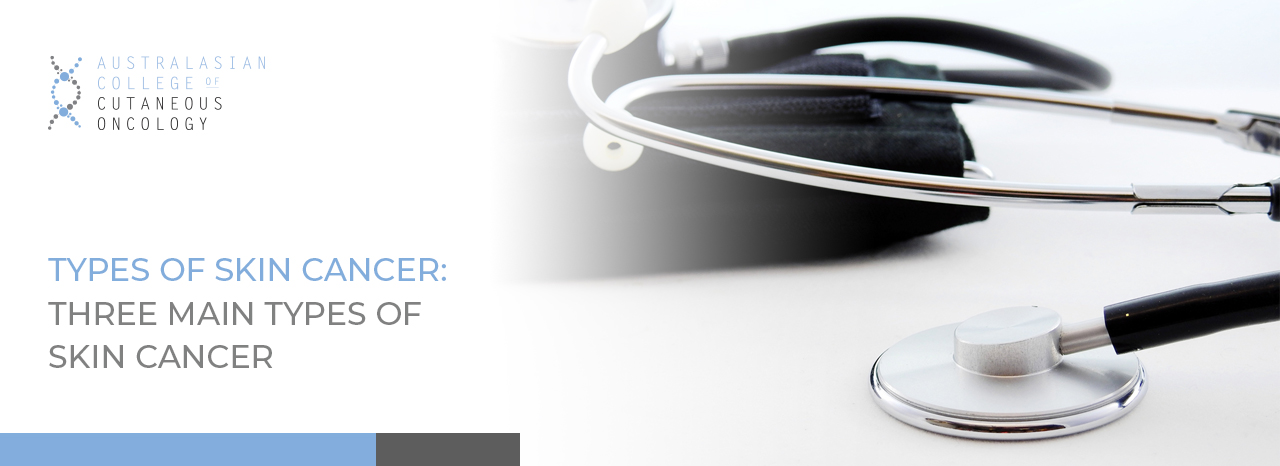Skin cancer can be dangerous if not treated well. Early detection is important to reduce the risk of skin cancer. In this article we will discuss the three most common skin cancer types. These three types of tumour account for over 98% of all skin cancers.
Here are three main types of skin cancer:
#1 Basal cell carcinoma (BCC)
The commonest skin cancer is Basal Cell Carcinoma (BCC). This is a cancer of the cells associated with outer layers of the skin. BCCs account for over 45% of all skin cancers.
BCCs most often develop on the neck and head, although you can find it anywhere. It is mainly caused by sun. BCCs can be locally destructive if not detected and treated early. They only rarely spread or become fatal.
#2 Squamous cell carcinoma (SCC) of the skin
The second commonest type of skin cancer is Squamous Cell Carcinoma (SCC). Flat, scale-like cells called squamous cells make up most of the epidermis. Over 40% of skin cancers develop from these cells, and these cancers are called SCCs.
SCC are common on sun-exposed areas such as the ears, face, scalp, neck and hands. The skin at these sites often reveal signs of sun damage, including wrinkles and sun spots. SCC can occur on the lips. SCCs can appear at sites of a long-standing scar.
Apart from on the skin, SCCs can occur inside the mouth, the anus, the lungs, the throat and the vagina. SCC spreads around the body much more readily than BCCs.
Some SCCs can grow rapidly and metastasize if not detected and treated early.
#3 Melanoma
Melanoma is the most dangerous of the three common forms of skin cancer. Early detection and treatment give the best chance of survival. Melanoma is a cancer that develops from melanocytes, the skin cells that produce melanin pigment. Melanin gives skin its color. Once a melanoma has grown more than 1mm in depth it can enter the blood stream and spread through the body.
Melanoma can resemble dark “moles” on the skin. Melanoma can even occur on parts of the skin that rarely or never see the sun. For example, melanoma can develop on the genitalia, buttocks and feet.
Melanoma risk doubles if a person experiences intense sun exposure that leads to sunburn. Tanning bed use also increases the risk of melanoma.
ACCO teaches doctors about skin cancer
Doctors learn in-depth knowledge of skin cancer with ACCO (Australasian College of Cutaneous Oncology). ACCO provides practical and theory-based to improve and certify competency in the management of skin cancer.
Our policy is that no pharmaceutical company shall be permitted to sponsor or endorse any event, function or workshop in any manner. This creates a truly unique and unbiased learning environment.
© ACCO 2021

